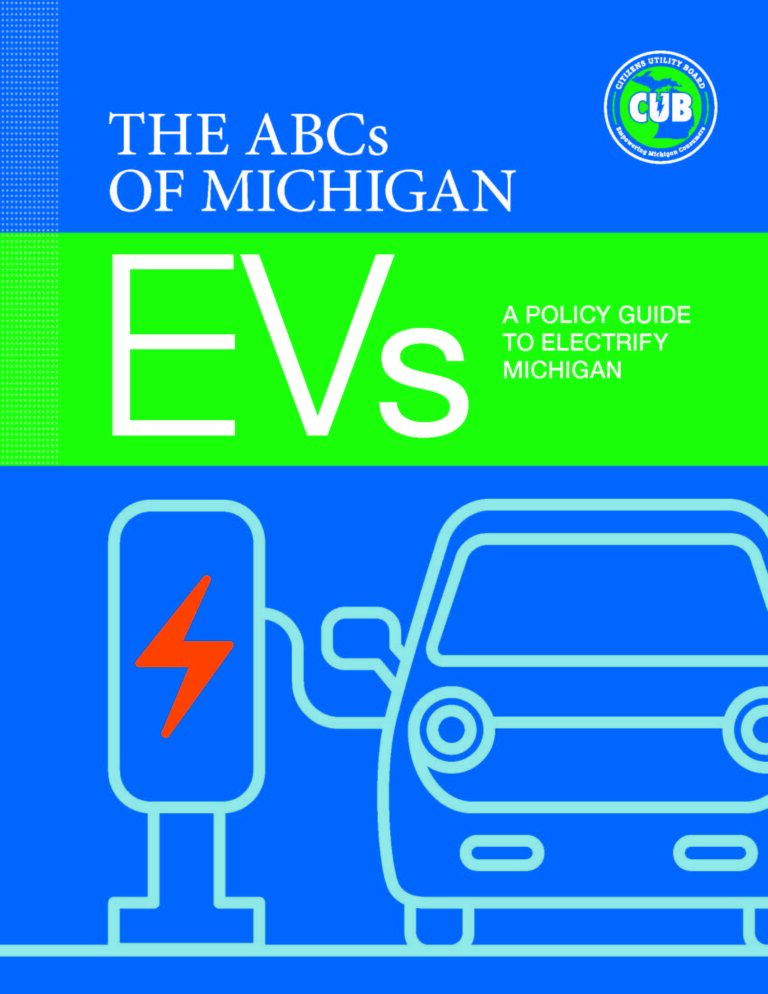Electric vehicles (EVs) seem poised to revolutionize both transportation and electric power, but how widely will their benefits be shared across society? Although automakers have been rolling out more affordable models, EVs have tended to be luxury items that are out of reach of most consumers. In addition, the costs of transitioning the grid and road infrastructure to EVs may fall hardest on these same customers who can least afford EVs.
To help ensure that policies to manage the transition toward EVs are fair and consumer-friendly, the Citizens Utility Board of Michigan has released a report, The ABCs of Michigan EVs: A Policy Guide To Electrify Michigan. The report is one of a series being produced by the other Citizens Utility Boards in the Midwest, representing Illinois, Minnesota, Wisconsin and Ohio.
This initiative from the CUBs could not come at a more relevant time. The recently-passed federal infrastructure bill will invest $7.5 billion into EV-related projects around the country, and about $110 million of that is for Michigan specifically, with opportunities for the state to apply for grants from $2.5 billion in funding for EV charging.
But as Gov. Whitmer releases her plan for coordinating this federal support, policy makers need to make sure that the benefits of this investment will be equitably shared with residential ratepayers. That is where this report comes in.
The Michigan edition looks at how the state’s policy makers can build on the work already done by Gov. Whitmer’s Council on Future Mobility and Electrification to plan for the rise of EVs.
Recommendations in the report include:
- Utilities and regulators should develop managing-charging pilots, including Direct Load Control programs that:
- respond to local system conditions.
- manage critical peak periods.
- aggregate EV load as a Demand Response resource.
- maximize renewable energy utilization.
- Utilities should automatically enroll all EVs in EV-only time-of-use (TOU) rates that have:
- No separate meter required.
- No extra monthly fees beyond the cost of service.
- EV usage/charges listed separately on a single
- household bill.
- Price differentials that offer meaningful savings
- between periods.
- State and local governments should, where personal EVs are unlikely to proliferate, take steps like:
- deploy e-buses and other initiatives, such as low-cost EV car-sharing where residents have low or moderate incomes.
- make EV charging available at multi-unit buildings and for drivers without access to a garage or permanent parking space.

